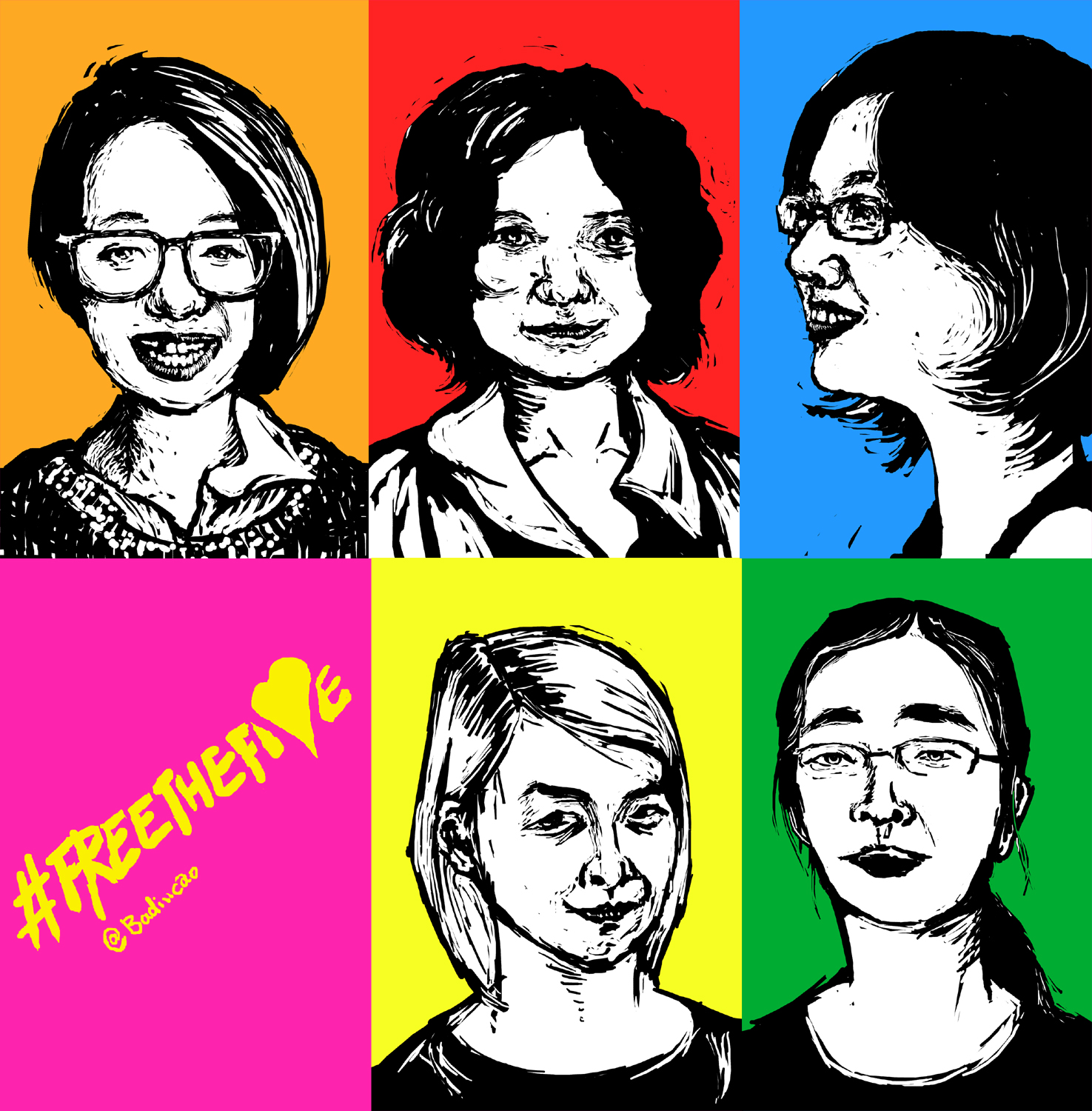When five feminist activists were detained in 2015 after planning a public education campaign against sexual harassment, it focused the world’s attention on women’s rights in China and a new style of activism among the younger generation. In a post on the new Women and Gender in China blog, Sharon R. Wesoky writes about the differences, and similarities, between the youthful feminist activists and their older counterparts who were active during the 1995 Fourth World Conference on Women (FWCW) in Beijing:
And so a younger generation of feminists, sometimes self-consciously critical of the older generation, engages in new forms of activism—scholars point to their use of activities such as street theatre and performance art, social media, and “impact litigation” as distinguishing them from the FWCW generation of NGO activists. This new generation is also returning to translating “feminism” as nüquanzhuyi rather than nüxingzhuyi, which among other things is regarded as putting a greater emphasis on women’s struggle for rights. In many ways, these young feminists are creating a salutary reconstruction of Chinese feminism’s approach by placing it more firmly in the realm of the political. They are acknowledging the limitations of the FWCW-era activist approaches which sought more cooperation than confrontation with the Party-state, while also in some cases seeking to use the legal system to allay discrimination against some of China’s most marginalised groups. [Source]
Several of the detained activists faced restrictions on their activities and movements after their release. Wu Rongrong had her travel rights revoked until this week, when she was allowed to travel to Hong Kong to undertake a course of study in law. AFP reports:
Wu Rongrong plans to fly to Hong Kong on Sunday to pursue a master’s degree in law in the semi-autonomous city, which has a separate legal system and border controls.
“It was a very complicated process, but now I have my permits and passport back and I will be able to go anywhere,” Wu told AFP on Thursday.
The 32-year-old said she felt “prepared to fight” after receiving notice from security authorities that she would not be allowed to leave the mainland for a decade.
In recent weeks, she shared the police letters on her Twitter-like Weibo microblogging account, attracting international attention. [Source]
Public discussion of the women’s activism and their treatment by authorities is largely censored. When AFP correspondent Joanna Chiu was interviewed on the official CGTN about women’s rights in China, the discussion was cut when she mentioned Wu and her travel restrictions:
.@cgtnamerica asked me to talk about women in China. They completely cut out point about feminists getting arrested. https://t.co/bcjLBBMH97
— Joanna Chiu 趙淇欣 (@joannachiu) September 21, 2017
Ok to mention pay gap, skewed birth ratio, govt push traditional roles, but Feminist 5 arrests, Wu Rongrong travel ban censored @CGTNamerica pic.twitter.com/Bl8VL2X2cH
— Joanna Chiu 趙淇欣 (@joannachiu) September 21, 2017
On the political front, women have not fared much better, according to a Wall Street Journal article by Andrew Browne. A return to traditional Chinese culture in the official rhetoric is also turning the clock back on women’s rights; Browne writes: “The glass ceiling in politics is now reinforced by a rigidly paternalistic philosophy”:
This dismal record will almost certainly go unchallenged during the party’s next shuffle in a few weeks. As with so much in the political arena under Mr. Xi, China is heading backward on women’s rights. He has compounded an unabashed sexism in senior party appointments with a broad assault on civil society, including feminist groups.
[…] Feminist leaders are dismayed. Writing in the Paper, a state-owned news website, the activist Wang Xiaoneng bemoans a conservative backlash against feminists by men who portray them as “objects with claws, a hateful face, bias against men and psychological distortions”.
Others think the problem is deeply entrenched attitudes in the party, which the sociologist Li Yinhe argues are widespread around the world. “Among women politicians, the ones with a strong feminist inclination can hardly be selected; only those who don’t make men feel threatened can,” she wrote in a commentary after the last US presidential election. [Source]
See also a special edition of China Policy Institute: Analysis on gender in China.







